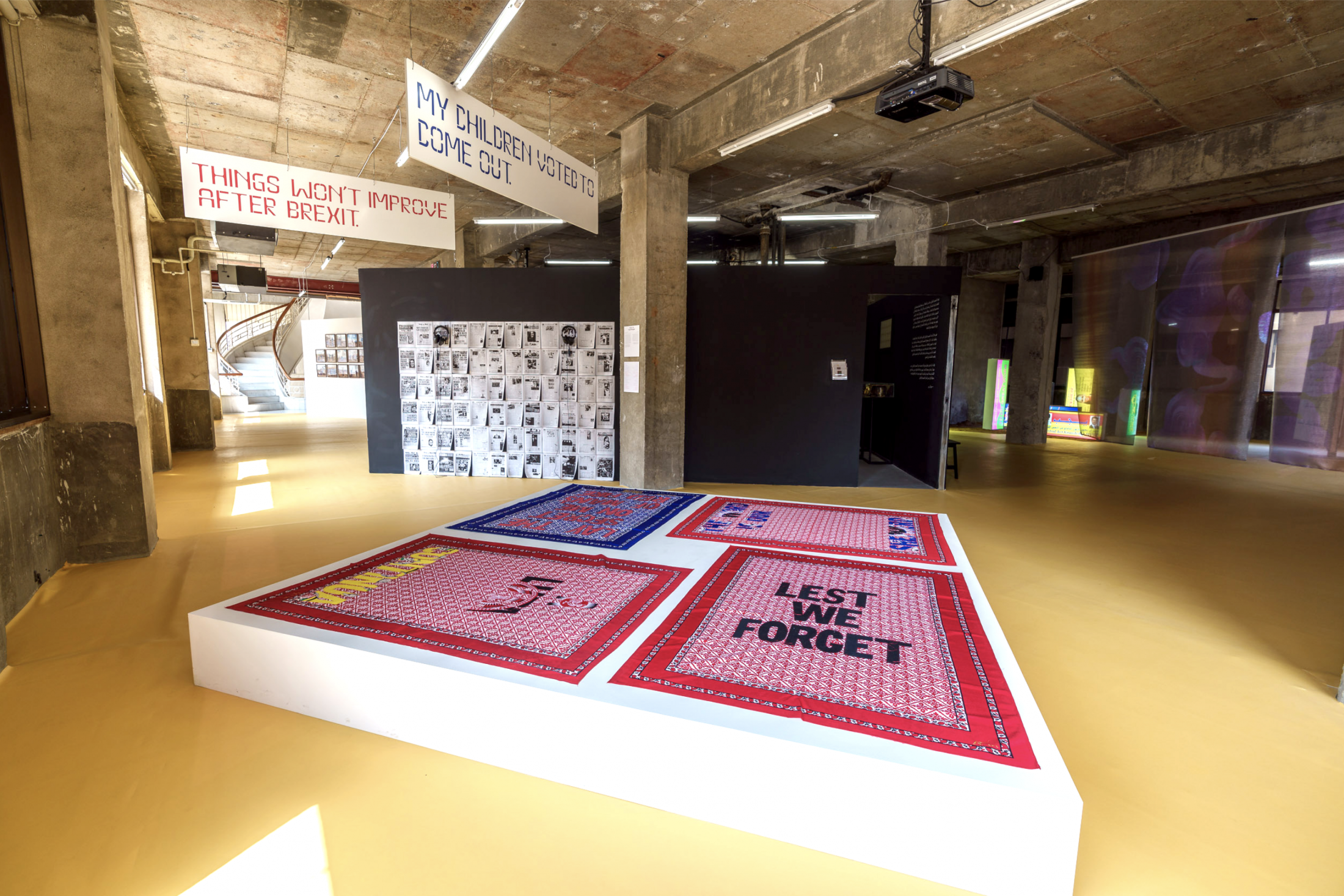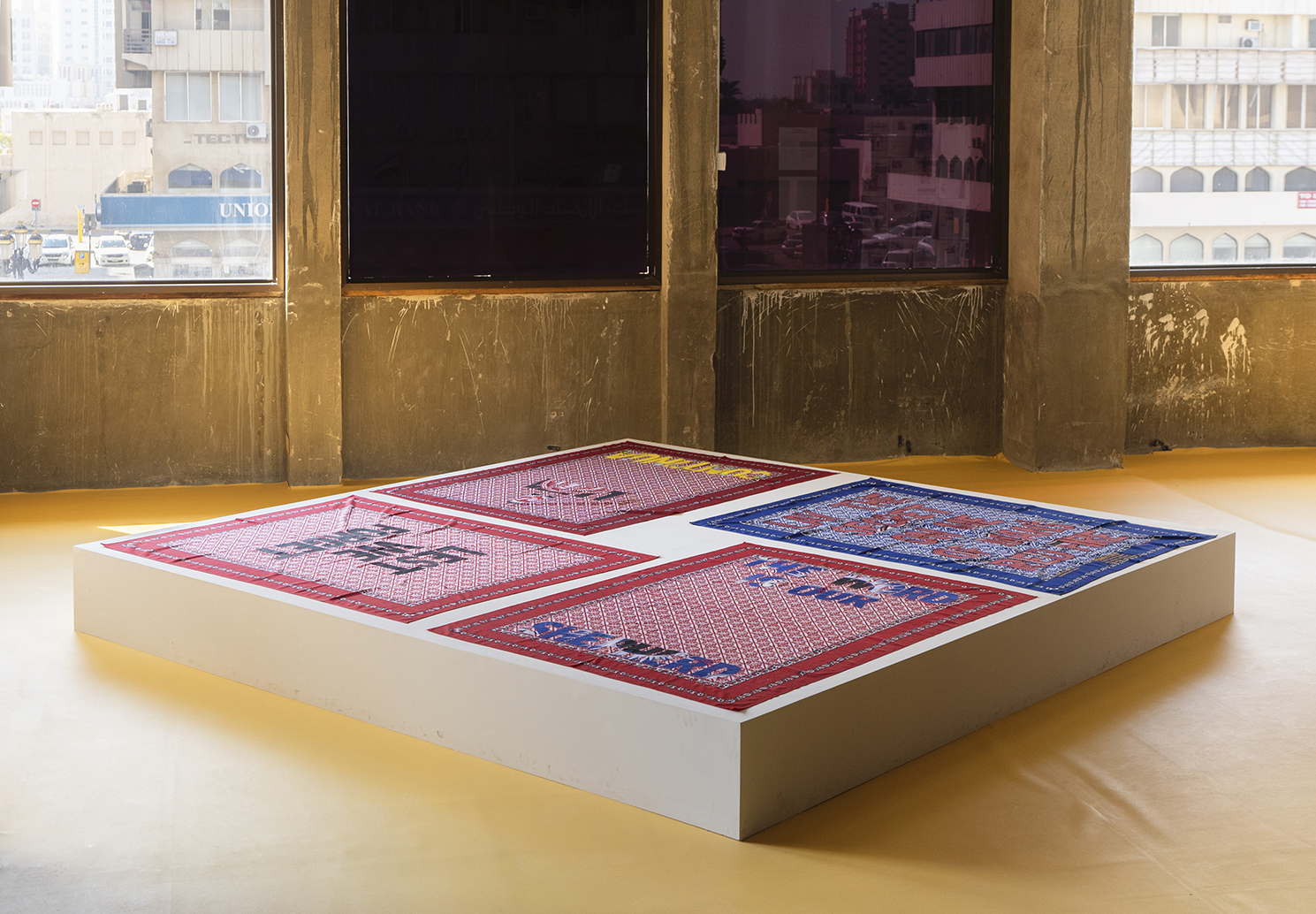I wanna be like you
2015
Embroideries on Kanga
Psychiatrist, philosopher, and revolutionary Frantz Fanon is famously quoted as saying that ‘the colonized man is an envious man’. A similar kind of envy lingers in the swingdance in Disney’s Jungle Book. Its lyrics describe the wish for ‘man’s red fire’, which is the desire for power. In this context, the song’s seemingly innocent title ‘I Wan’na Be Like You’ — echoed in this work’s title — becomes charged with those desires for domination. With this piece, Lemaoana reminds us that this title and the phrase hidden among the lyrics — embroidered by the artist on Kanga textile, a fabric with a complex colonial ancestry itself — need to be considered as one inseparable unity.
The Word is our Shepherd
2017
Embroideries on Kanga
Referring to the Biblical phrase ‘The Lord is my Shepherd,’ this work is a critique of the phenomenon of misusing of the scripture (and with it the ‘Word of God’) for material and monetary gains. Such corruption has spread like wildfire in South Africa. Many people have fallen prey to religious scams and ‘false prophets,’ whose claim to the Lord’s ‘Word’ has led individuals to performing humiliating acts such as publically eating grass, drinking petroleum, or being sprayed with pesticides on instruction. Such techniques are also used by political parties, who use religious quotes to gain votes.
A Luta Continua
2017
Embroideries on Kanga
Even after their country’s political liberation, the mantra of the Mozambique Liberation Front ‘A Luta Continua’ (The Struggle Continues) remains ubiquitous in political rallies by the same party as well as its allies. South African singer and activist Miriam Makeba reiterated this phrase in her eponymous song, which her daughter wrote for her after Makeba attended Mozambique’s independence ceremony in 1975. The phrase has since also been adopted by liberation movements and protesters across the African continent, most recently by student activists in Nigeria and in South Africa. The slogan now resembles a prayer from a yearning mass, yet this emotive gesture is equally echoed by manipulative political elites
Lest we Forget
2017
Embroideries on Kanga
Inscribed on plaques of historical monuments, the phrase ‘Lest we forget’ invests in the idea of remembrance and transforms objects into historical artifacts. It effectively charges the physical monument, turning the sculpture into the physical embodiment of a historicized moment.


